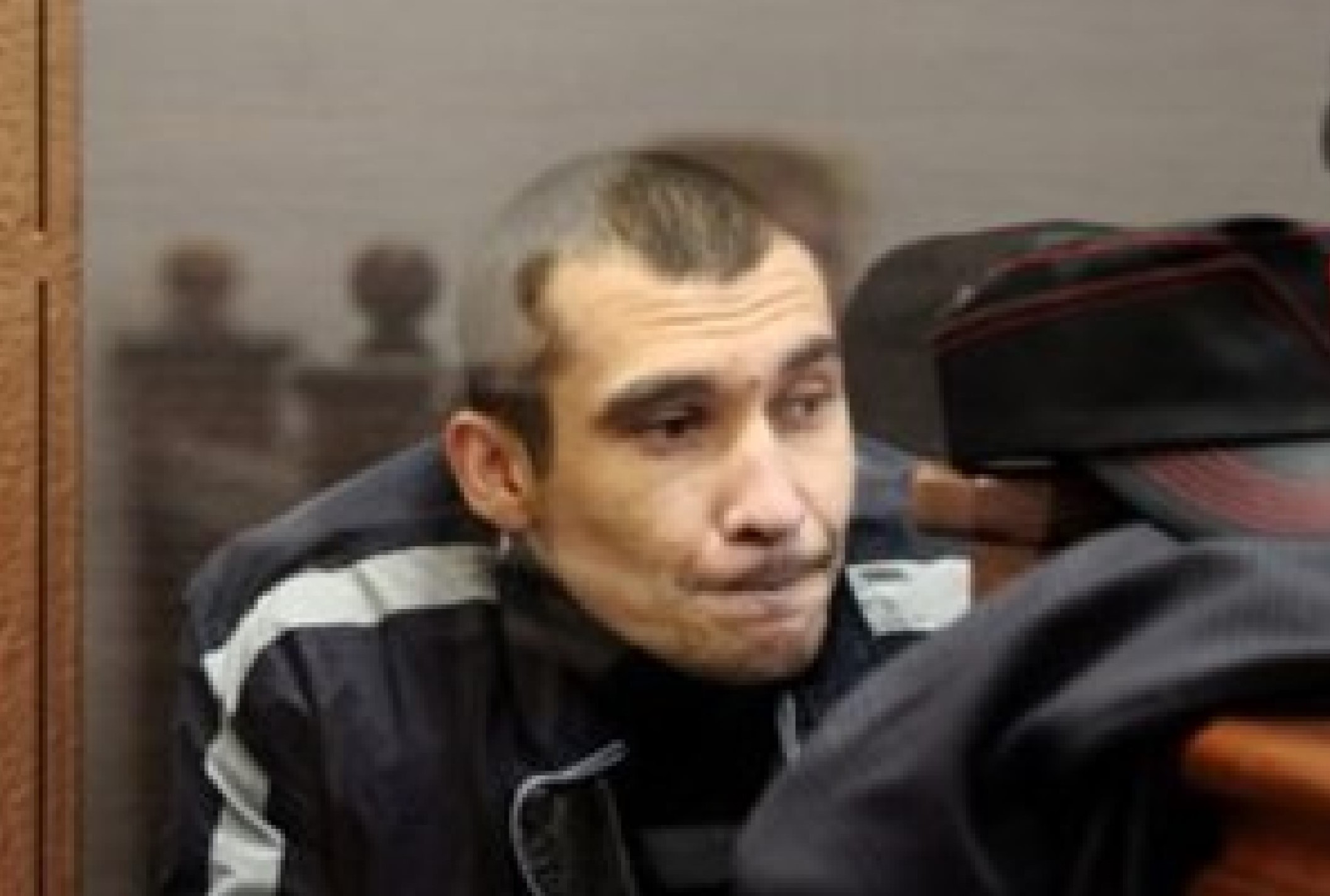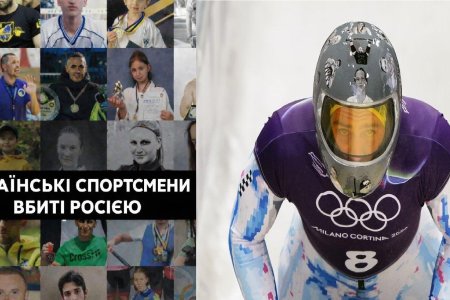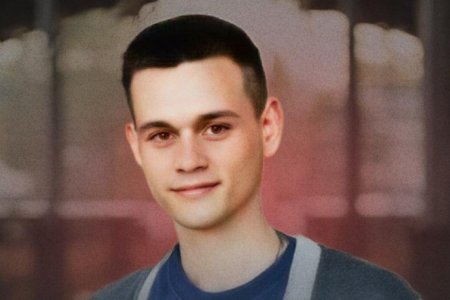
Scroll down for update about the verdict
The trial of a young man from Loshchynivka in Odesa oblast whose arrest was used as a pretext for shocking anti-Roma riots is drawing to an end with the Ukrainian prosecutor demanding that Mykhailo Chebotar be found guilty and receive a life sentence. This is despite the young man having an alibi for the time of the crime, as established by two separate forensic examinations, as well as multiple irregularities, many of which contributed to a recent European Court of Human Rights [ECHR] judgement which ordered Ukraine to pay Chebotar damages. The riots back in August 2016 received international coverage, not least because of the appalling role played by both the police and the local authorities. Chebotar’s trial may not have made the headlines, but there are compelling grounds for agreeing with Odesa journalist Tetiana Gerasimova when she calls this “one of the most important trials in Ukraine”.
Mykhailo Chebotar is accused of the rape and murder of an 8-year-old girl, Angelina, whose body was found at around 7 a.m. on 27 August 2016 on some unoccupied land near where she lived, with her mother, stepfather and half-brother. Chebotar was arrested almost immediately, and has been in detention ever since, despite his apparent alibi and other problems with the case against him.
The trial is now coming to an end at the Prymorsky District Court in Odesa, with the court debate begun on 30 January by prosecutor Svitlana Kolohreva. In the space of 40 minutes, she asserted that Chebotar’s guilt had been proven and that all of the evidence presented had been admissible. She asked the court to sentence him to life imprisonment, and dismissed Chebotar’s own assertion that Angelina was killed by her stepfather Oleksandr Matiash as an attempt to avoid punishment for his own crime.
Chebotar has been represented throughout by lawyer Andriy Leshchenko who believes the case against him to have been fabricated. An invaluable role has also been played by Tetiana Gerasimova who has attended and reported on the hearings. In her report on Kolohreva’s address, she expressed concern that the prosecutor had only mentioned what could back the prosecution’s case and muffled evidence that did quite the contrary.
The first such issue is, undoubtedly that of when the crime was committed. Two forensic assessments gave that time as being between 22.00 and 1.25 a.m. Chebotar, however, has an alibi for that period, since he was either with Matiash alone, or with a large number of people. For six years the prosecution insisted that Chebotar had committed the crime “on his way home” from the bar (although his way home is in a different direction) between 2.30 and 3 a.m. Then, two or three days before Kolohreva claimed Chebotar’s guilt to be proven, she applied to the court to change the indictment, in particular, the time of the crime. The prosecution has essentially moved everything forward by half an hour, claiming that Chebotar left the bar to go home at 1.30. It is now claimed that after 1.30, as “he was walking past” the home of Angelina and her family, and overcome by sexual desire, he decided to rape the little girl. He is alleged to have raped and killed her between 2.00 and 2.30. This is ‘better’ for the prosecution, but still considerably later than the latest possible time (01.25) given by two forensic assessments.
Gerasimova openly expresses frustration at what she sees as the prosecutor’s failure to credibly explain Chebotar’s alleged motive. It was claimed that he had left the bar after an argument with a friend based on jealousy and that he then went to Matiash’ home, took the 8-year-old, who supposedly remained asleep, to the unoccupied land, covered her mouth, raped and killed her. There is no explanation of how Chebotar, who is of fairly slight build, managed to carry an eight-year-old outside (whether this was through the door or a window) and then a further 20-30 metres, almost certainly in the dark, without the little girl waking up and screaming. The motive, Gerasimova, suggests, also makes little sense. If Chebotar had got angry with a friend, after a night of drinking, why not have it out with the friend, and not go and rape and kill the stepdaughter of another friend, and, in addition, a little girl whom he knew well and often looked after? If there had been any evidence of Chebotar being a paedophile, this would not have escaped attention in a small village where everybody knows each other. The other issue, as mentioned, is that the claim that Chebotar was gripped by this sudden urge ‘on his way home’ makes no sense, since his own home was on the other side of the village.
There is a further question that the prosecutor preferred to ignore, although it has been raised before by the defence. This is supposed to have been a rape, yet there was no sperm found anywhere, neither on Angelina, nor on Chebotar, nor on their clothes. It is difficult to imagine how this would be possible even in the case of a crime committed with time to spare and the ability to check the surroundings for traces. The prosecution is alleging that Chebotar committed the crime on an unoccupied plot of land in the middle of the night, and in the full knowledge that Angelina’s mother would be home from her job at the Fortuna Bar (where her partner and Chebotar had been drinking) shortly.
Prosecutor Kolohreva also asserted that the testimony of two brothers (who are friends of Chebotar) Rustam Churar and Armen Muntian prove Chebotar’s guilt. In fact, the testimony they gave, including about the behaviour of Chebotar and Matiash on the fateful evening, differed significantly from that of other witnesses who are relatives or friends of Matiash. They also essentially substantiate Chebotar’s account of events that evening, when the group of partiers, celebrating a birthday, set off for the bar. Matiash and Chebotar separated from the others because Matiash said he needed to check on the two small children who were at home alone.
Chebotar asserts that they went in to the house together, where Matiash found that while his son was asleep, Angelina was not in her room. He got angry, and when she appeared, having simply gone outside to the toilet, he hit her around the head and she fell. Chebotar lifted the little girl up and pushed Matiash who then shoved him. Chebotar says that at this point he turned around and left since “I didn’t want to fight in front of the child”. He assumes that it was then that he lost his cap (which led police dogs to his home). He says that he arrived at the bar at 1 a.m. and was there, inside or outside, with others from then on. Matiash turned up 20-25 minutes later, wearing other clothes. Most worryingly, Chebotar says that Matiash went into the bar, looking angry, and went up to his wife and told her something, with his arms waving about. It was clear, he says, that they were quarrelling. About 15 minutes later, Matiash called Chebotar over to the corner of the bar. He got out a screwdriver and said that he’d borrowed it from Chebotar and had forgotten to return it. Chebotar says that he simply took it and put it in his pocket. It was dark in the corner and he would not have noticed what state the screwdriver was in. Chebotar then returned to the group, and says he headed off home at 2 a.m. He told the court that he is convinced that Matiash killed the little girl.
The two brothers, questioned separately, both confirmed that Matiash had arrived later than Chebotar and that he had stormed past them, without saying hello, which they said was unusual. Both also noted that Matiash had changed into other clothes. Churar recounted that Matiash had rung him in the morning, calling him to their place and telling him about the murder. Churar recalled that Kateryna Moiseyenko, Angelina’s mother, had said that Matiash had screamed at her in the bar and been in a strange state.
Both brothers also testified that the police had demanded that they say that Chebotar was guilty, and had beaten them when they refused and said that he was innocent. In a television interview shortly after the murder, Churar said that he believed that Matiash had killed his stepfather. He also stated in court that both the mother and stepfather had often beaten Angelina and that the entire village had known that the little girl often wandered about hungry.
Gerasimova also mentions the testimony of other witnesses which would seem to make it clear that Angelina’s mother had in fact come home and discovered that her daughter was missing earlier than she stated in court, and well before 3 a.m. Although she went out looking for Angelina, the police were only notified in the morning.
It is telling that, had it not been for the defence’s persistence, the critical testimony of two sisters would not have been heard in court. Valentina Kazanzhi and Veronika Dobreva, who were in the Fortuna Bar on the night of Angelina’s murder, were outside smoking between 12.30 and 1 a.m. and heard screams from the direction of Angelina’s home and the unoccupied land. heard screams from that direction. Kazanzhi demonstrated to the court several times the sound that she had heard and said that at the time they thought that people were having a row. She says that she was already home at 2.00, with this crucial since the prosecution is claiming that Chebotar committed the murder after that time. Kazanzhi went on to explain that a schoolfriend had rung her in the morning and told her about Angelina’s murder. It was then, she says, that she understood that the screams they had heard could be linked to this. She went to the police and was questioned by the investigators. Presiding Judge Viktor Ivanov asked the witness to specify when exactly she had heard the screams and she reiterated that it had been between 0.30 and 1.00 on 27 August 2016. Chebotar has a watertight alibi for that time, Matiash has none.
Andriy Leshchenko has called for the entire case to be thrown out and believes that the charges against his client were falsified. He calls it politically motivated, noting that the then Odesa Regional Governor, Mikhail Saakashvili had, for the sake of popularity among voters, publicly claimed that the murderer had been caught. This is a flagrant violation of the presumption of innocence by a person with considerable influence, yet the defence’s attempts to have it added to the case were rejected. It seems likely that the European Court of Human Rights will be less likely to ignore it if this case ends up there again.
The defence have also pointed to evidence that appears to have been faked and believes that other evidence should be deemed inadmissible because of the methods used to obtain it and / or because it was based on such initially faked proof.
There is, in general, a curious lack of DNA evidence, given that this is alleged to have been a sexual crime committed in haste and in the dark. Chebotar himself asserts that no DNA swabs were taken from him, only blood. The defence have repeatedly pointed to the fact that a hand swab taken from Chebotar contained only Angelina’s DNA, but not his own. A different forensic institute did not find Chebotar’s DNA in the samples taken from under the victim’s fingernails (of her right hand).
There is nothing to suggest that any other explanation for Angelina’s murder was ever considered. This is of particular concern given the efforts made to stretch out the timeframe for the crime, rather than accept that Chebotar has an alibi, as well as the physical force used against Chebotar and those witnesses who refused to accuse the then 21-year-old Chebotar of the crime. It is also worrying since Chebotar has reported overtly racist (anti-Roma) comments from the officers who tried to force him to ‘confess’, while enforcement officers and the local authorities were complicit when the arrest of a young man who had lived in Loshchynivka all his life was turned into an excuse for violent riots and attempts to drive Roma families out of the area.
Update The Prymorsky District Court on 1 February 2023 passed a life sentence on Mykhailo Chebotar despite the multiple concerns outlined below, some of which resulted in a recent damning European Court of Human Rights judgement. The sentence is not final and will certainly be appealed once the defence has received the court's full justification for its verdict.
See also:
ECHR slams Ukraine over detention which triggered anti-Roma riots in Odesa oblast
Chillingly retrograde Ukrainian court ruling justifies anti-Roma pogrom as ‘direct democracy’



